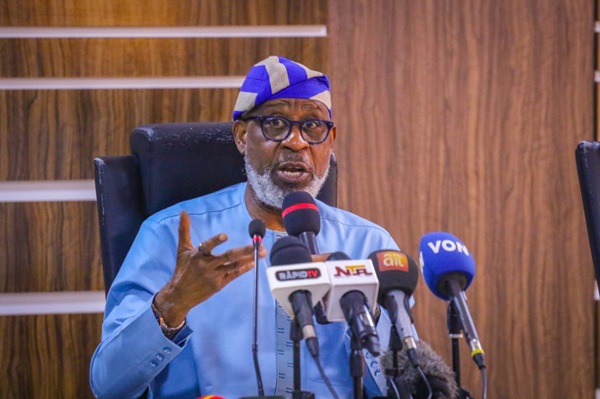Place your adverts here on InfoDig @ low rates; banner ads, sponsored links and guest articles etc. Contact us
The 2024 Annual Africa Wealth Report has indicated that Nigeria, South Africa, Egypt, Kenya, and Morocco account for not less than 56% of Africa’s millionaires and over 90% of its billionaires.
The report, published by the international wealth advisory firm Henley & Partners in collaboration with global wealth intelligence partner New World Wealth, noted that “there are currently 135,200 high-net-worth individuals (HNWIs) with liquid investable wealth of USD 1 million or more living in Africa, along with 342 centi-millionaires worth USD 100 million or more, and 21 dollar billionaires.”
The report further pegged the total investable wealth on the African continent at USD 2.5 trillion and projected a 65% rise in the number of millionaires over the next 10 years. “The total investable wealth currently held on the African continent amounts to USD 2.5 trillion, and its millionaire population is set to rise by 65% over the next 10 years.”
According to Dominic Volek, Group Head of Private Clients at Henley & Partners, wealth growth on the continent has not been without its setbacks. “Currency depreciation and underperforming stock markets have chipped away at Africa’s wealth compared to global benchmarks.
For instance, the South African rand fell 43% against the US dollar from 2013 to 2023, and even though the JSE All Share Index, which makes up well over half of Africa’s listed company holdings, rose in local currency terms, it was down 5% in US dollar terms over that period.
“Currencies in most other African countries also performed poorly compared to the dollar over the past 10 years, with dramatic depreciations of over 75% recorded in Nigeria, Egypt, Angola, and Zambia.”
Reacting, Andrew Amoils, the Head of Research at New World Wealth, adds that African nations are also losing large numbers of HNWIs to migration, which is eroding the continent’s wealth. “According to our latest figures, approximately 18,700 high-net-worth individuals have left Africa over the past decade (2013 to 2023).
There are currently 54 African-born billionaires in the world, including one of the world’s richest, Elon Musk, but only 21 of them still live on the continent. Most of these individuals have relocated to the UK, the USA, Australia, and the UAE. Significant numbers have also moved to France, Switzerland, Monaco, Portugal, Canada, New Zealand, and Israel.”
The report also noted some of the fastest-growing markets in the world, while underscoring that South Africa is home to over twice as many HNWIs as any other African country.
“Despite a tough past decade that saw a 20% decline in its millionaire population, South Africa remains home to over twice as many HNWIs as any other African country, with 37,400 millionaires, 102 centi-millionaires, and 5 billionaires, followed by Egypt with 15,600 millionaires, 52 centi-millionaires, and 7 billionaires.
Nigeria sits in third place with 8,200 HNWIs, followed by Kenya (7,200 millionaires), Morocco (6,800), Mauritius (5,100), Algeria (2,800), Ethiopia (2,700), Ghana (2,700), and Namibia (2,300), all making it into the top 10 wealthiest countries in Africa.
“Going forward, over the next decade (to 2033), the likes of Mauritius, Namibia, Morocco, Zambia, Kenya, Uganda, and Rwanda are all expected to experience 80%+ millionaire growth. Mauritius, with its stable governance and favorable tax regime, is projected to experience a remarkable 95% growth rate, positioning it as one of the world’s fastest-growing wealth markets. Namibia, too, is poised for impressive high-net-worth growth, which is forecast to exceed 85% by 2033. Both Mauritius and Namibia offer investment migration pathways to attract global investors.
Commenting on the 2024 Africa Wealth Report, renowned South African political commentator, newspaper columnist, and best-selling author, Justice Malala, says that with growth projected at 4% by the IMF, Sub-Saharan Africa will be the second-fastest-growing region in the world in 2024, after Asia.
“The African Development Bank predicts that Africa will account for 11 out of the 20 fastest-growing economies in the world this year. And with a new global political order emerging, African voices are also being elevated in international decision-making bodies.
“With Russia, China, the USA, and the EU all jostling for favor on the continent, African leaders have become more emboldened and are demanding a seat at the top tables. These developments will lead to closer relationships between continental leaders and other ‘middle powers’ such as India, Turkey, Argentina, and Saudi Arabia. Already, Ethiopia and Egypt have joined the BRICS grouping, and the African Union has become a permanent member of the G20. Previously, only South Africa was in these exclusive clubs.”
“At the city level, Johannesburg holds its place as the wealthiest city in Africa, with 12,300 millionaires, 25 centi-millionaires, and 2 billionaires. Cape Town follows closely with 7,400 millionaires, 28 centi-millionaires, and 1 billionaire. Cairo (7,200 millionaires), Nairobi (4,400), and Lagos (4,200) also stand out as key urban wealth hubs.
When it comes to future millionaire-magnet cities and regions, Amoils says Cape Town, South Africa’s Whale Coast, Kigali, Windhoek, Swakopmund, Nairobi, Tangier, and Marrakech are all expected to enjoy 85%+ millionaire growth over the next 10 years. “Solid growth of over 80%+ is also projected in Lusaka and Mombasa. Cape Town is on track to overtake Johannesburg to become Africa’s wealthiest city by 2030. We expect several major Johannesburg-based companies to move their head offices to Cape Town over the next decade, which should help drive wealth growth in the city.”
Louisa Mojela, Group Chairman of the black women-owned investment firm WIPHOLD, and Nontobeko Ndhlazi, Group CFO of WIPHOLD, say Africa is undoubtedly open for business. “Known as the continent with both the youngest and fastest-growing population, Africa naturally holds the greatest potential for investment prospects. Additionally, having the dubious honor of also being the poorest continent, it provides the broadest and most fulfilling opportunities for impact investing.”
Tobi Adetunji is a Business Reporter with Techeconomy.
Contact: adetunji.tobi@techeconomy.ng

 4 hours ago
31
4 hours ago
31
















 English (US) ·
English (US) ·